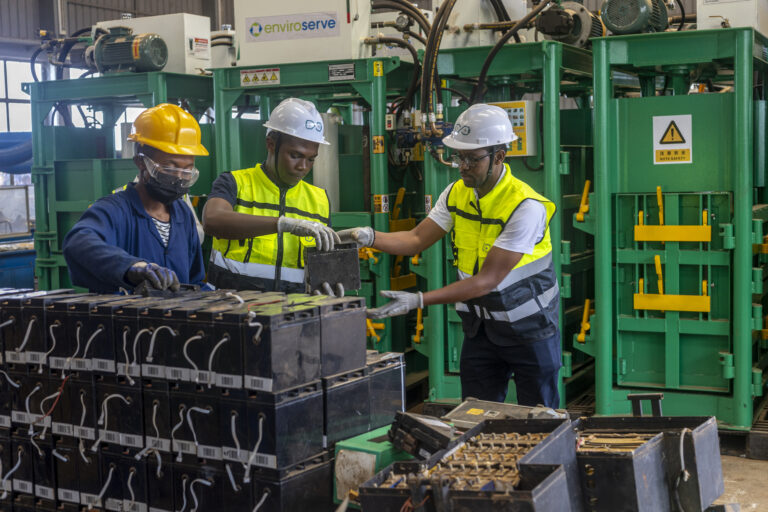Rwandan electrical and battery engineer Léandre Berwa is leading efforts to recycle electric batteries, helping to reduce electric waste in the country. Together with his colleagues, they have developed a system to meet the need for reliable power and affordable energy storage in Africa’s telecommunications and mini-grid sectors.
The company sources retired batteries from Enviroserve Rwanda Green Park, an electronic waste management company. Since some cells age faster than others, a discarded battery pack usually has some cells with sufficient usable capacity. A battery pack is only as good as its weakest cell.
The battery packs for re-use are dismantled to obtain individual cells, which are assessed to identify their remaining usable charge and resistance. Berwa’s software uses numerical optimisation models to determine the optimal configuration of battery cells with different discharge capacity and internal resistance.
The SLB pack contains lithium iron phosphate battery cells, each with a nominal voltage of 3.2 volts, and can be customised to contain other battery cell types. Its discharge capacity is 50 ampere hours (Ah), and multiple SLB packs can be stacked.
By extending the batteries’ usable life, the innovation reduces electronic waste and the environmental impact of energy storage.
While conventional battery packs have cells soldered or welded together, the SLB has an interlocking modular design that can be unscrewed when a cell is replaced, so each cell is used until its true end-of-life.
The packs are recharged through a connection to the grid or solar power. Each pack has a battery management system (BMS) to monitor performance such as state of charge, cell voltage, current, and temperature. The BMS is tuned to monitor batteries with different performance parameters, rather than assuming uniformity.
The performance data is transmitted every second via GPRS communication to a cloud-based monitoring platform and can be viewed on an online dashboard. This enables real-time tracking of battery performance, allowing users to make energy- and cost-related decision based on relevant data.
The SLB solution is offered to telecom tower and mini-grid operators on a battery-as-a-service (BaaS) business model, protecting customer cash by avoiding capital costs and reducing operating costs.
While still in the pilot phase, Berwa and his team aim to offer a 43 percent cost saving to operators once BaaS is scaled up.

